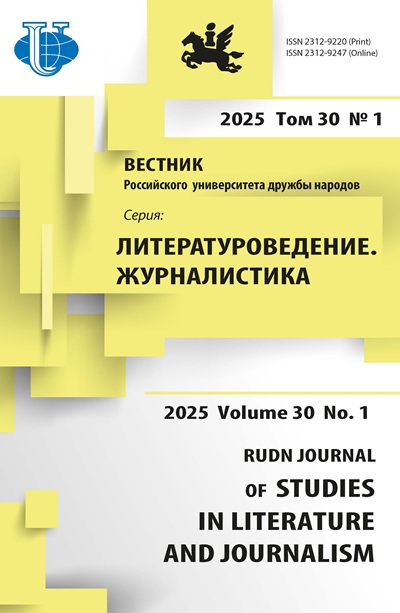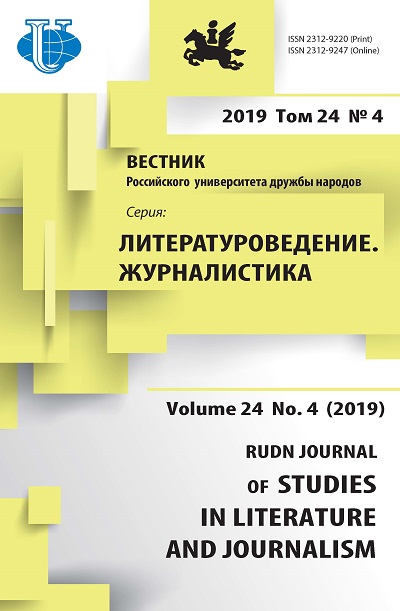Society and people diagnosed with autism spectrum disorder: an analysis of message descriptors of social media
- Authors: Vazhenina O.A.1, Lobodenko L.K.1
-
Affiliations:
- South Ural State University (National Research University)
- Issue: Vol 24, No 4 (2019)
- Pages: 744-755
- Section: JOURNALISM
- URL: https://journals.rudn.ru/literary-criticism/article/view/23074
- DOI: https://doi.org/10.22363/2312-9220-2019-24-4-744-755
Cite item
















